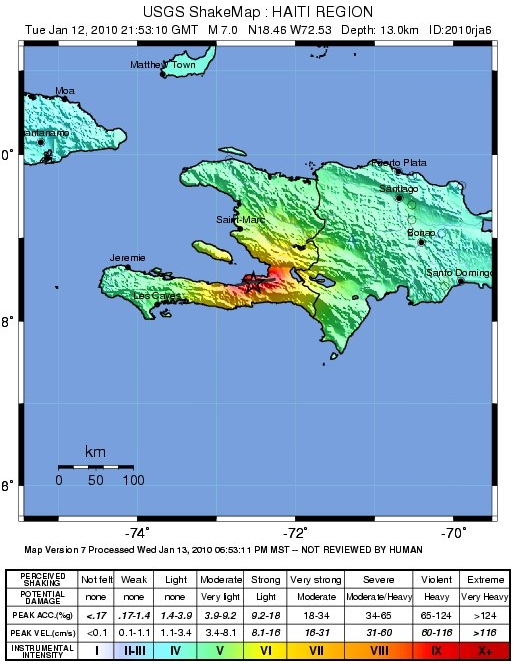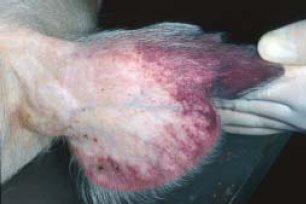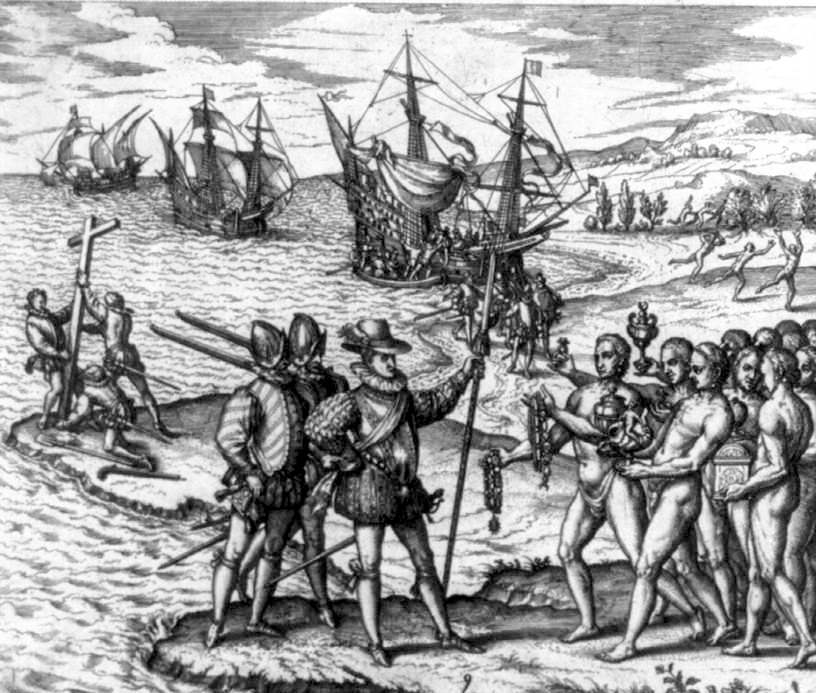|
Cité Soleil
Cité Soleil (; ; English: ) is an extremely impoverished and densely populated commune located in the Port-au-Prince metropolitan area in Haiti. Cité Soleil originally developed as a shanty town and grew to an estimated 200,000 to 400,000 residents, the majority of whom live in extreme poverty. The area is generally regarded as one of the poorest and most dangerous areas of the Western Hemisphere and it is one of the biggest slums in the Northern Hemisphere. The area has virtually no sewers and has a poorly maintained open canal system that serves as its sewage system, few formal businesses but many local commercial activities and enterprises, sporadic but largely unpaid for electricity, a few hospitals, and two government schools, ''Lycée Nationale de Cité Soleil'', and École Nationale de Cité Soleil. For several years until 2007, the area was ruled by a number of gangs, each controlling their own sectors. Government control was reestablished after a series of operations ... [...More Info...] [...Related Items...] OR: [Wikipedia] [Google] [Baidu] |
List Of Communes Of Haiti
The commune () is the third-level divisions of Haiti. The 10 departments have 42 arrondissements, which are divided into 147 communes and then into 571 communal sections. Communes are roughly equivalent to civil townships and incorporated municipalities. Administration Each commune has a municipal council (''conseil municipal'') compound of three members elected by the inhabitants of the commune for a 4-year term. The municipal council is led by a president often called ''mayor''.Each commune has a municipal assembly (''assemblée municipale'') who assists the council in its work. The members of the assembly are also elected for 4 years. Each commune is ruled by a municipality. List Artibonite * Dessalines Arrondissement ** Dessalines ** Desdunes ** Grande-Saline ** Petite Rivière de l'Artibonite * Gonaïves Arrondissement ** Gonaïves ** Ennery ** L'Estère * Gros Morne Arrondissement ** Gros-Morne ** Anse-Rouge ** Terre-Neuve * Marmelade Arrondissement ** Marmelad ... [...More Info...] [...Related Items...] OR: [Wikipedia] [Google] [Baidu] |
2010 Haiti Earthquake
The 2010 Haiti earthquake was a catastrophic Moment magnitude scale, magnitude 7.0 Mw earthquake that struck Haiti at 16:53 local time (21:53 UTC) on Tuesday, 12 January 2010. The epicenter was near the town of Léogâne, Ouest (department), Ouest department, approximately west of Port-au-Prince, Haiti's capital. By 24 January, at least 52 aftershocks measuring 4.5 or greater had been recorded. An estimated three million people were affected by the quake. Death toll estimates range from 100,000 to about 160,000 to Haitian government figures from 220,000 to 316,000, although these latter figures are a matter of some dispute. The earthquake is the deadliest natural disaster of the 21st century for a single country. The government of Haiti estimated that 250,000 residential area, residences and 30,000 commercial buildings had collapsed or were severely damaged. Haiti's history of External debt of Haiti, national debt, prejudicial trade policies by other countries, and for ... [...More Info...] [...Related Items...] OR: [Wikipedia] [Google] [Baidu] |
Jean-Claude Duvalier
Jean-Claude Duvalier (; 3 July 19514 October 2014), nicknamed "Baby Doc" (, ), was a Haitian dictator who held the presidency of Haiti from 1971 until he was overthrown by a popular uprising in February 1986. He succeeded his father François "Papa Doc" Duvalier as the ruler of Haiti after his death in 1971. After assuming power, he introduced cosmetic changes to his father's regime and delegated much authority to his advisors. Thousands of Haitians were tortured and killed, and hundreds of thousands fled the country during his presidency. He maintained a notoriously lavish lifestyle (including a state-sponsored US$2million wedding in 1980) while poverty among his people remained the most widespread of any country in the Western Hemisphere. Relations with the United States improved after Duvalier's ascension to the presidency, and later deteriorated under the Carter administration, only to normalize under Ronald Reagan due to the strong anti-communist stance of the Duvaliers ... [...More Info...] [...Related Items...] OR: [Wikipedia] [Google] [Baidu] |
Leslie Delatour
Leslie Delatour (1950–2001) was a Haitian public official and economist who shaped Haiti’s economic policies during the late 20th century. He was Haiti's Minister of Finance in 1986–1987 and later Governor of the Bank of the Republic of Haiti from 1994 to 1998. He also served as consultant at the World Bank, the Inter-American Development Bank, and USAID. A neoliberal, Delatour advocated for fiscal discipline, economic liberalization, and structural reforms. He helped shape Haiti’s economic strategies in collaboration with organizations such as the International Monetary Fund (IMF) and the World Bank. His policies led to huge privatisations, destroyed the country's agriculture industry, and led to a large influx of rural poor to the nation's capital, Port-au-Prince. At the height of his career, Delatour was dubbed by '' Le Monde Diplomatique'' as "all-powerful". Early life Delatour was born in 1950. He studied at Johns Hopkins University, and at the University of Ch ... [...More Info...] [...Related Items...] OR: [Wikipedia] [Google] [Baidu] |
African Swine Fever
African swine fever virus (ASFV) is a large, double-stranded DNA virus in the '' Asfarviridae'' family. It is the causative agent of African swine fever (ASF). The virus causes a hemorrhagic fever with high mortality rates in domestic pigs; some isolates can cause death of animals as quickly as a week after infection. It persistently infects its natural hosts, warthogs, bushpigs, and soft ticks of the genus ''Ornithodoros'', which likely act as a vector, with no disease signs. It does not cause disease in humans. ASFV is endemic to sub-Saharan Africa and exists in the wild through a cycle of infection between ticks and wild pigs, bushpigs, and warthogs. The disease was first described after European settlers brought pigs into areas endemic with ASFV, and as such, is an example of an emerging infectious disease. ASFV replicates in the cytoplasm of infected cells. It is the only virus with a double-stranded DNA genome known to be transmitted by arthropods. Virology AS ... [...More Info...] [...Related Items...] OR: [Wikipedia] [Google] [Baidu] |
Squatter
Squatting is the action of occupying an abandoned or unoccupied area of land or a building (usually residential) that the squatter does not Land ownership and tenure, own, rent or otherwise have lawful permission to use. The United Nations estimated in 2003 that there were one billion slum residents and squatters globally. Squatting is practiced worldwide, typically when people find empty buildings or land to occupy for housing. In developing countries and least developed countries, shanty towns often begin as squatted settlements. In African cities such as Lagos, much of the population lives in slums. There are pavement dwellers in India and in Hong Kong as well as rooftop slums. Informal settlements in Latin America are known by names such as villa miseria (Argentina), pueblos jóvenes (Peru) and asentamientos irregulares (Guatemala, Uruguay). In Brazil, there are favelas in the major cities and rural land-based movements. In industrialized countries, there are often residentia ... [...More Info...] [...Related Items...] OR: [Wikipedia] [Google] [Baidu] |
Neoliberal
Neoliberalism is a political and economic ideology that advocates for free-market capitalism, which became dominant in policy-making from the late 20th century onward. The term has multiple, competing definitions, and is most often used pejoratively. In scholarly use, the term is often left undefined or used to describe a multitude of phenomena. However, it is primarily employed to delineate the societal transformation resulting from market-based reforms. Neoliberalism originated among European Liberalism, liberal scholars during the 1930s. It emerged as a response to the perceived decline in popularity of classical liberalism, which was seen as giving way to a social liberal desire to control markets. This shift in thinking was shaped by the Great Depression and manifested in policies designed to counter the volatility of free markets. One motivation for the development of policies designed to mitigate the volatility of capitalist free markets was a desire to avoid repeatin ... [...More Info...] [...Related Items...] OR: [Wikipedia] [Google] [Baidu] |
Simone Ovide Duvalier
Simone Duvalier (; ''née'' Ovide; 19 March 1913 – 26 December 1997), also known as Mama Doc, was the wife of Haitian leader François "Papa Doc" Duvalier and the First Lady of Haiti. Early life She was born Simone Ovide in about 1913 near the Haitian town of Léogâne, the daughter of a mulatto merchant and writer, Jules Faine, and Célie Ovide, one of the maids in his household. At an early age her mother gave her up, and she spent much of her childhood in an orphanage in Pétion-Ville, an exclusive suburb in the hills above Port-au-Prince. The orphans were encouraged to acquire vocational skills and Simone Ovide was trained as a nurse's aide. While working as a nurse she met a young doctor named François Duvalier (''Papa Doc''). The couple was married on 27 December 1939, and had four children: Marie Denise, Nicole, Simone “Queen”, and Jean-Claude, their only son. First Lady After their marriage, François Duvalier became minister of public health and labor in ... [...More Info...] [...Related Items...] OR: [Wikipedia] [Google] [Baidu] |
History Of Haiti
The recorded history of Haiti began in 1492, when the European captain and explorer Christopher Columbus landed on a large island in the region of the western Atlantic Ocean that later came to be known as the Caribbean. The western portion of the island of Hispaniola, where Haiti is situated, was inhabited by the Taíno people, Taíno and Arawak peoples, Arawakan people, who called their island ''Ayiti.'' The island was promptly claimed for the Spanish Empire, Spanish Crown, where it was named ''La Isla Española'' ("the Spanish Island"), later Latinisation of names, Latinized to ''Hispaniola''. By the early 17th century, the French had built a settlement on the west of Hispaniola and called it Saint-Domingue. Prior to the Seven Years' War (1756–1763), the economy of Saint-Domingue gradually expanded, with sugar and, later, coffee becoming important export crops. After the war which had disrupted maritime commerce, the colony underwent rapid expansion. In 1767, it exported indigo ... [...More Info...] [...Related Items...] OR: [Wikipedia] [Google] [Baidu] |
Politics Of Haiti
The politics of Haiti takes place in the framework of a unitary semi-presidential republic, where the president is the head of state and the prime minister is the head of government. The politics of Haiti are considered historically unstable due to various '' coups d'état'', regime changes, military juntas and internal conflicts. After Jean-Bertrand Aristide was deposed, Haitian politics became relatively stable. In 2023, the V-Dem Democracy indices determined Haiti to be the fourth least electorally democratic country in Latin America. Political corruption is widespread in Haiti and it has consistently ranked as one of the most corrupt nations according to the Corruption Perceptions Index, a measure of perceived political corruption. In 2006, Haiti was ranked as the most corrupt nation out of the 163 that were surveyed for the index. In 2020, Haiti was #170 out of 180. The International Red Cross reported that Haiti was 155th out of 159 countries in a similar survey of corru ... [...More Info...] [...Related Items...] OR: [Wikipedia] [Google] [Baidu] |
AIDS
The HIV, human immunodeficiency virus (HIV) is a retrovirus that attacks the immune system. Without treatment, it can lead to a spectrum of conditions including acquired immunodeficiency syndrome (AIDS). It is a Preventive healthcare, preventable disease. It can be managed with treatment and become a manageable chronic health condition. While there is no cure or vaccine for HIV, Management of HIV/AIDS, antiretroviral treatment can slow the course of the disease, and if used before significant disease progression, can extend the life expectancy of someone living with HIV to a nearly standard level. An HIV-positive person on treatment can expect to live a normal life, and die with the virus, not of it. Effective #Treatment, treatment for HIV-positive people (people living with HIV) involves a life-long regimen of medicine to suppress the virus, making the viral load undetectable. Treatment is recommended as soon as the diagnosis is made. An HIV-positive person who has an ... [...More Info...] [...Related Items...] OR: [Wikipedia] [Google] [Baidu] |




